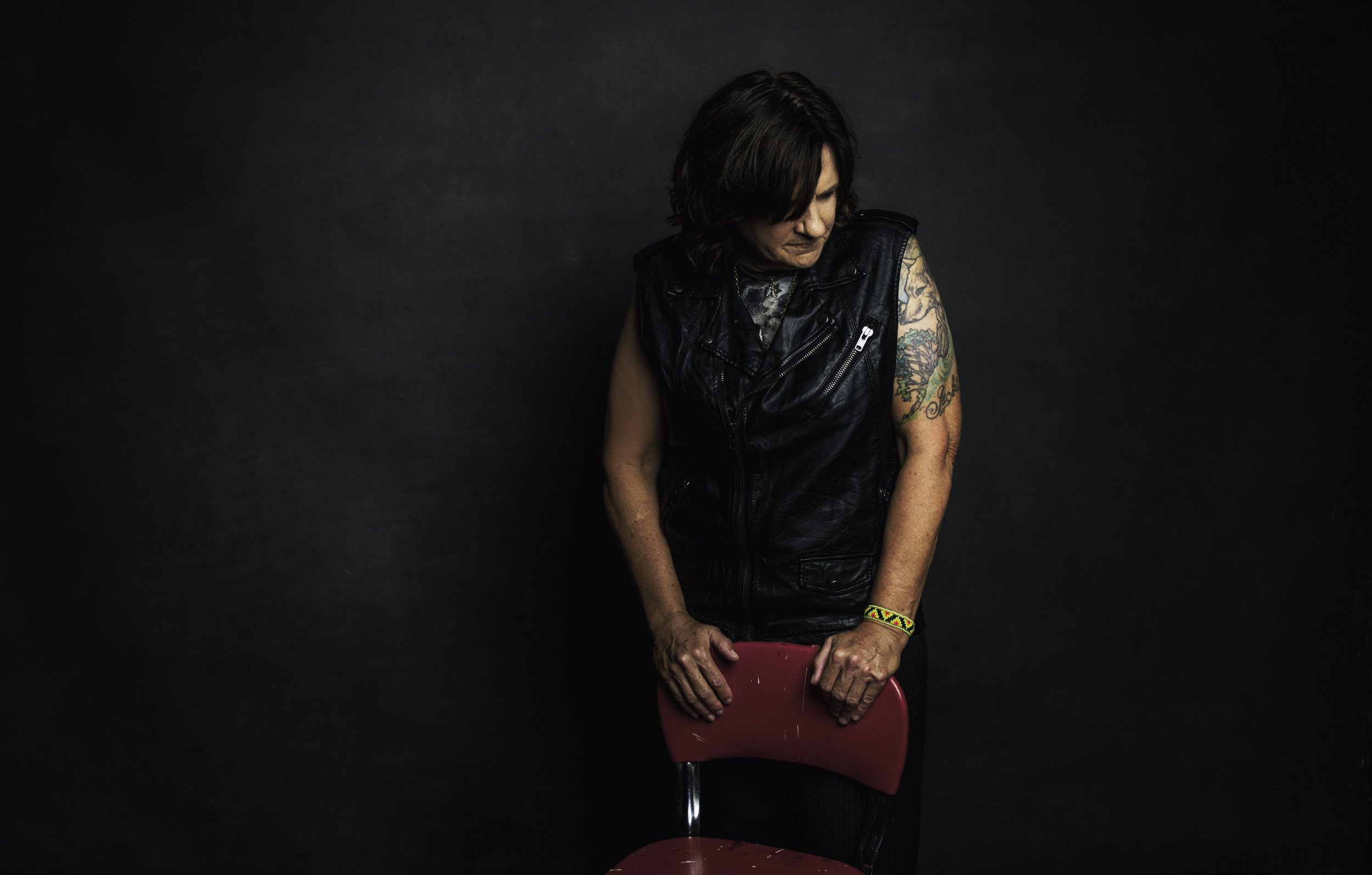Amy Ray Copes with Recent Years on "If It All Goes South"

Amy Ray, by Sandlin Gaither
The Indigo Girl’s new solo album includes timeless songs and songs made for these times.
“If it all goes south …” is the start to a coping mechanism. It’s a phrase that introduces the Plan B you devised in case Plan A fails. If it All Goes South is also the title of the most recent album from The Indigo Girls’ Amy Ray, who’ll play Tipitina’s with her band on Monday night. The ways we cope is a thread running through the album as it was written and recorded while dealing with COVID, political and social turmoil. “The politics of the moment might have affected it more than being at home,” she says by phone.
If it All Goes South is Ray’s tenth solo album, and it comes from a similar musical place as The Indigo Girls. The songs are clearly Ray songs, but they’re often more raucous, leaning into the Americana space where folk, country, and rock intersect. Guitarist Jeff Fielder has collaborated with Ray for 10 years, and the band is made up of other long-time friends. That familial vibe that familiarity creates is important to Ray. “When I go on tour with them, I’m having fun,” she says.
Part of the pleasure for her is listening to the band’s ability to be alive and spontaneous yet precise enough to pull off the music. They were tested when they recorded the album live to tape in a Nashville studio last year. “That method of doing things brings things to life for me because I have to be in the moment, y’know?”
The greatest challenge to that live ethos was the new version of “They Won’t Have Me,” an Indigo Girls song that originally appeared near the end of 2006’s Despite Our Differences. While working on If it All Goes South, Ray decided that the Indigo Girls’ version didn’t live up to the song’s promise with its simple, straight ahead rock presentation. She and Fielder envisioned it as more dynamic, starting with the band playing acoustic instruments and becoming more intense until they would have to switch to electric instruments to take it to its natural conclusion. That required what Ray calls “choreography” since they were recording live, and the band members had to figure out how and when to switch from acoustic to electric instruments without breaking the performance. Producer Brian Speiser had to reset all the levels on the fly to accommodate those changes, but the resulting instrumental break is dramatic and surprising for an artist best known for her songwriting.
“There’s an emotionalism from that, from being in the moment,” she says.
The small and large crises of the last few years gave the album its core. Ray started writing much of the material in 2019 while The Indigo Girls were on tour, but she didn’t resolve them until 2020 or so. “I start a lot of things and then I work on them all at the same time and finish them together,” Ray says. For that reason, a world in crisis looms around the edges of the songs on the album, though COVID wasn’t the specific, immediate backdrop. Ray has a home in the country in Georgia, so the fear of infection that fueled so much anxiety wasn’t part of her day-to-day. She lived there with her partner, her daughter, and another family so Ray wasn’t lonely. She had set a home recording rig, so she could do pre-production for the album and bounce tracks between other members of the band, which made it possible for the band to knock the album out in nine days when they finally went into a Nashville studio in 2022.
“It was pretty idyllic compared to what other people were going through,” Ray says.
One song, “Subway,” was as much a product of COVID as anything on the album. With its chorus, “‘Don't take the subway, baby, let's just walk,’ we'd say, 'til our longing turns to day / Remember when Alphabet City was a wilderness to you and me, before Rudy had his way,” it’s about a New York City in actual and emotional flux for Ray.
“If there’s any city I miss, it’s Berlin or New York,” she says, but at the time she could only think of New York as a site of conflict and loss. DJ Rita Houston was a friend who died from cancer during that time, and many people she knew were isolated in their apartments. At the same time, the Black Lives Matter marches and the reasons for the protests combined in her mind to make it seem like a very different city from the one she remembered.
Much of If it All Goes South works that way, thinking thoughts about larger, timeless themes like the way memory processes loss, but the folkie in Ray is never far from the surface and like the best folk songs, some songs are made specifically for the here and now. They’re designed to bring change. “Cowboys and Pirates” has a lot about climate change in it she says, and “Tear it Down” was obviously written with Black Lives Matter and the removal of the Confederate monuments in mind.
That kind of song frees her up in certain ways. As a singer, Ray likes to create memorable, well-crafted melodies, but for more political songs, sometimes a clever melody can become a distraction. On “The Rise of the Black Messiah,” which The Indigo Girls recorded in 2015, “I used a very simple melody that’s of a folk ilk because the words are so important,” she says. The song tells the story of the Angola 3, who were framed for the murder of a prison guard and sentenced to solitary confinement. “You want a good melody, but when I’m writing a song that’s so topical, it’s like a social justice story, I’m not struggling over the melody. The melody’s a vehicle to deliver this story.”
If it All Goes South opens with “Joy Train,” which sounds another note for how to cope with hard times: a sense of purpose and the joy that comes with it. Its ecstatic chorus borrow from southern gospel to musically create uplifting moments while she sings:
Medgar Evers haunts me
I swear he follows me around
I saw him riding with Christ's Calvary
And the horses and the hounds
Singing, "Joy is thy victory!"
At the revival picnic ground
"Death where is thy sting to be found!"
The Evers and Civil Rights Movement leaders in her song are icons of purpose and inspiration, and “their spirit reminds me not to waste my gifts,” she says. That’s not always easy to remember because, like most of us, she finds it hard not to be cynical at times. “But I never have plain old cynicism with nothing else with it. I’m really idealistic and I’m really cynical,” she says. “Joy energizes whatever activism you’re doing.”
Joy and activism don’t always go hand in hand, and talking about the two reminds her of Native American activist Winona LeDuke, who co-founded the non-profit Honor the Earth with The Indigo Girls in in 1993. “She used to say to us before board meetings and big group meetings, Remember, we’re the cool kids and we’re having a good time,” Ray says. The idea that struggle doesn’t always have to feel like a struggle is one that white volunteers often haven’t internalized Ray says, but “that humor plus joy makes someone stay on the pipeline standoff for a month,” Ray says. “If you don’t have fun, you can’t do it.”
She recognizes that it’s a thought she has to hang on to. “I don’t write songs that are funny,” she says. “I know I don’t, but when we play, whether the Indigos or with my band, it’s supposed to be fun.”
Creator of My Spilt Milk and its spin-off Christmas music website and podcast, TwelveSongsOfChristmas.com.






